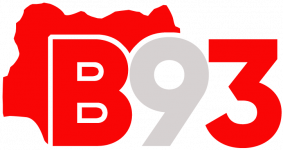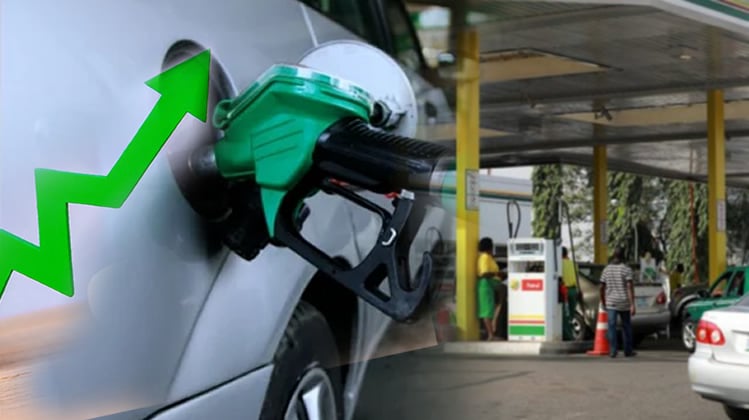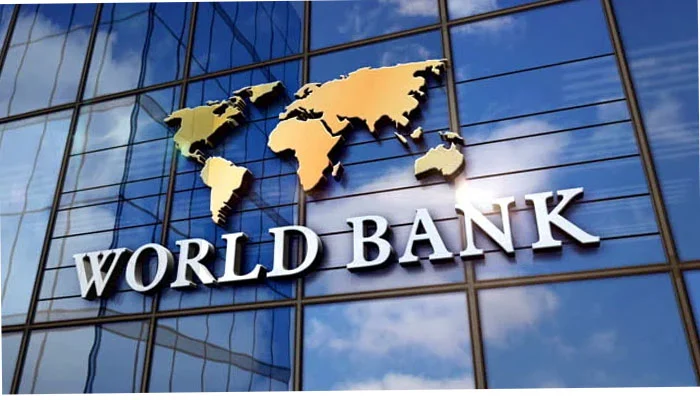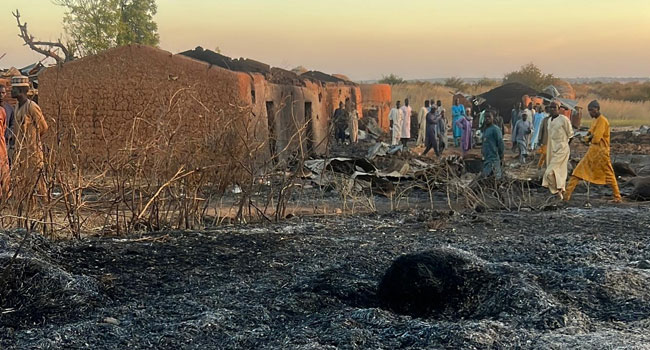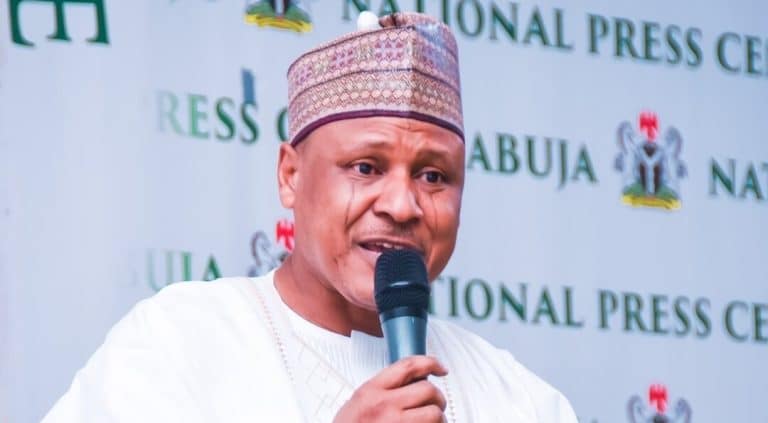The Federal Government has initiated discussions to determine the pricing of Premium Motor Spirit (PMS) that will be produced by the Dangote Petroleum Refinery, expected to roll out in September 2024.
This move follows the government’s decision to implement crude oil sales to local refineries in naira, starting on October 1, 2024.
According to sources from oil marketers and the Implementation Committee on crude oil sales, led by the Minister of Finance, Wale Edun, a series of meetings will be held in the coming weeks to finalize a framework for the pricing of Dangote petrol.
One of the key considerations will be whether the government will offer subsidies for the petrol produced by Dangote Refinery or allow Nigerians to purchase the product at market prices.
Oil marketers have indicated that the cost of petrol from the Dangote Refinery could exceed current pump prices unless there is government intervention.
Currently, petrol sells at between ₦600 and ₦700 per litre across the country, while the landing cost is approximately ₦1,117 per litre.
NNPC, the sole importer of petrol in Nigeria, has been selling the product at about half of the landing cost through a subsidy arrangement with the government.
The company’s Chief Financial Officer, Umar Ajiya, confirmed that NNPC had covered around ₦7.8 trillion in “shortfall” in the first seven months of 2024 due to the subsidy.
The Federal Government’s committee overseeing the crude oil sales to local refineries recently reached an agreement with the Dangote Refinery, with plans to start selling petrol from the $20 billion plant in September.
Further discussions between the government, the refinery’s management, and stakeholders in the oil sector will determine the final pricing strategy as Nigeria seeks to balance market realities with the need to cushion the impact on consumers.
“The only way the government can intervene is to subsidise. There is nothing NNPC can do. I mean this. Do you want to kill the NNPC? Do you want the company to continue carrying the subsidy burden after the explanation it gave last week? It is not sustainable.
“Except you are saying NNPC will start doing whatever it can and nobody will expect profit from the company,” a source at the FMPR, who spoke in confidence with Punch due to lack of authorisation to speak on whether the NNPC would intervene in PMS price from Dangote, stated.
Asked to state a possible solution to the matter, the official replied, “The solution is for Nigerians to pay the real cost of petrol. But then you know, other things will come into play, because, you know, our economy is not that good. Things are not good for everyone.
“However, it is for Nigerians to pay the real cost of petrol or for the government to bring back subsidies. I don’t know, but it’s just those two things. They may consider this at the meeting, but for now the major discussions centre on crude supply in naira, which should be finalised in a few weeks.”
The source said the sale of crude to Dangote in naira had been settled, stressing that “his (Dangote) own portion will be sent to him. But they are still working on the framework, I know, we’ve been having meetings. So we’re having meetings. So hopefully, I think by next week we should be able to get a clearer picture on the modalities. We meet almost every two or three times a week.”
The source noted that one major challenge is the lack of the United States dollar, but stressed that the committee “will benchmark the exchange rate for crude sale to Dangote.”
The official added, “All the framework will be sorted and you know AfreximBank is with us in this.”
Also commenting on the development when contacted and asked if marketers had reached a price for Dangote petrol ahead of its release next month, a senior official of the Major Energies Marketers Association of Nigeria explained that though members of the association were willing to load from the plant, it would be tough due to the price.
He said, “There are two things: the first one is logistics and cost-taking. We’ve been taking AGO (diesel), ATK (aviation fuel) by vessel and truck. By now, we all know ourselves and we understand how it works. So that one is not a problem. When PMS starts, it will not be changed from what we were doing before. The methodology of picking it from them (Dangote) has already been worked out and it is already in place and play.
“Now, when it comes to price, that’s the second thing and the third one is, in what currency are we paying? That one is going to be between Dangote and the government because as the government has just confessed to you, there is a subsidy. So, Dangote cannot clear the subsidy by himself. In order to deal with it, I think the government is trying to intervene, though still in denial.
“However, I do not think the subsidy is a good policy. I do not think anything has changed concerning the subsidy. Subsidy shortchanges the country. The government still must recognise that things are very tough on Nigerians right now and must find a way. If it wants to remove the subsidy, what can it do to mitigate the challenges?”
The official, who also spoke in confidence, said the government had introduced the Compressed Natural Gas initiative to tackle the cost of subsidy on PMS.
“So, what he’s (President Bola Tinubu) trying to do is he’s trying to push CNG which is possible so that he can stop paying subsidies for PMS. The CNG uptake is going a lot slowly; but that is the solution, to move quickly with the alternative CNG, especially for commercial transportation and long-distance movement of foodstuffs from the bread baskets to the urban centres so that you can manage your inflation.
“But, can the government continue with a subsidy of ₦7.7tn? I don’t think so, and anybody who says that is not being fair to Nigerians. The government is just a temporary group of people in power; they will soon go when their time finishes but our country will still be here.
“It is government policy. Currently, the government policy is that there is no subsidy; there is no subsidy provided for in the budget. How much will Dangote sell for? Dangote is not prepared – I don’t think – to sell at below the cost of production. So, we will need to wait to see what the government will do,” the source stated.
Asked whether there would be an intervention from the government, the official replied, “There may be an intervention, yes. Refined crude will still be at the international market price, as it should be.”
On whether marketers are ready to buy petrol at the international market price form Dangote, the MEMAN official said, “No, marketers will not buy at higher than our pump prices and sell at our prices. But we don’t know how marketers will buy it.”
When probed further to tell if there is a pricing template for petrol now from Dangote, the official said, “No law allows you to have a pricing template; we have PIA (Petroleum Industry Act). The prices of diesel and aviation fuel are the market price. There is no official market price for PMS as we speak, no.”
On his part, the National Operations Controller of the Independent Petroleum Marketers Association of Nigeria, Mustapha Zarma, said unless there is an intervention by the government in the price of Dangote petrol, marketers will not be able to buy it if the policy on capping is not lifted.
Zarma said, “Nobody can start discussing petrol pricing modalities with Dangote now because you cannot buy their product. At the prevailing retail price in Nigeria now, you cannot buy their PMS. So they can only go into agreement with the government on pricing. Otherwise, the policy on capping of petrol prices will have to change.
“There is a cap on the price of petrol in Nigeria now, and I don’t think that as a businessman who is into business to make a profit, Dangote will want to sell his product below the market price. We all know NNPC has been shouldering subsidies on petrol.”
A post on the official X (formerly Twitter) page of the finance ministry about two weeks ago, stated that the meeting of the committee on crude sale in naira was to review progress on key initiatives.
At the meeting, key roles were outlined for stakeholders, including the Nigerian Midstream and Downstream Petroleum Regulatory Authority, Central Bank of Nigeria, Nigerian Upstream Petroleum Regulatory Commission, and the African Export-Import Bank to ensure smooth implementation.
The post read, “The Minister of Finance and Coordinating Minister of the Economy, Mr. Wale Edun, today led the Implementation Committee meeting on the transition to crude oil sales in naira.
“The meeting reviewed progress on key initiatives, including the upcoming commencement of naira payments for crude oil sales to the Dangote Refinery starting October 1, 2024.”
Also, the Executive Chairman of the Federal Inland Revenue Service, Dr Zacch Adedeji, and the Chairman of the Technical Sub-Committee reported that “The first PMS delivery from Dangote is expected next month under existing agreements.”
